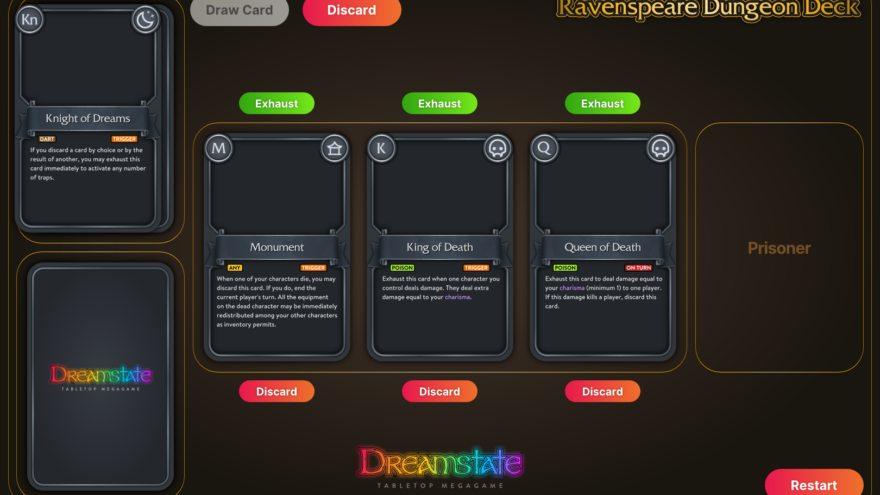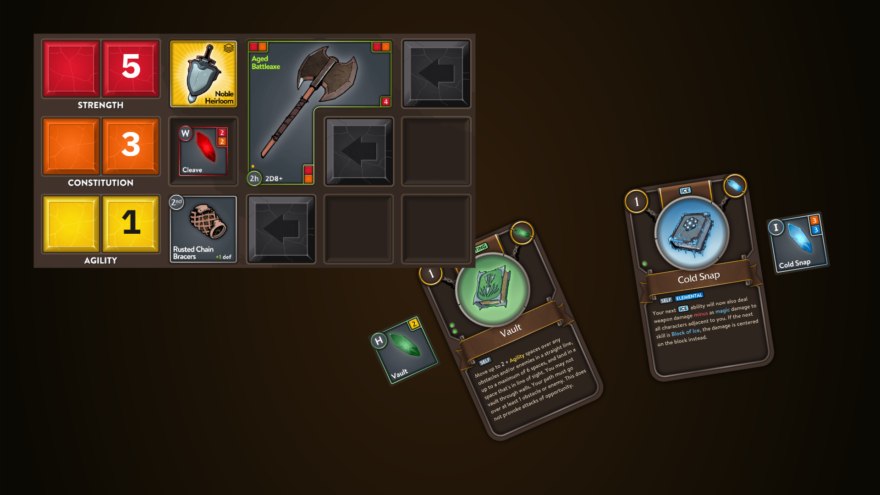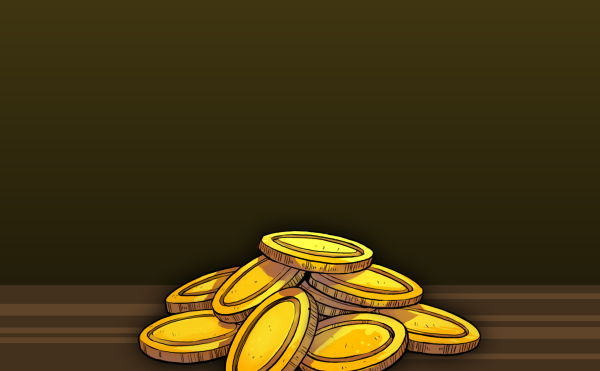The Rise of Turon
An excerpt from The History of the World
The final devastation changed and remade the world, and the chaos that reined left no remnant of what was.
In the new world those few survivors remembered all that they had lost, and they wept for it. They wept for those who had died, and more for those who had fallen with the city of Arkhaven. And in the ruin and chaos that ruled the world, the wonders and miracles of the city, the wonders of the stars, faded into legend and myth. The survivors lived in the wilderness, and could not place one stone atop another.
As myth faded, and the sorrow of what was lost dimmed against the glare of survival, mankind again began to build. Mankind again began to grow and thrive, and again began to master the world around them.
Fledgling kingdoms arose in darkness and isolation to master their surroundings and defend themselves from their fellow men.
Among these new kingdoms, one rose unlike all the others: Alkara. Where the others ruled in fear, Alkara ruled in justice. Where they squabbled for scraps, Alkara built unity. They thrived in chaos, but Alkara inspired order.
The idea of Alkara began in Telron, on the northern tail of the Yellow Mountains. It rose as a tide against the minor warring states around it, and one by one they joined as partners in the idea of order, justice, and unity. Piece by piece, from the Redcrest Sea to the Balewood in the west, to the Oceans of Ice in the south.
But as Alkara spread peace and justice on Telera, another kingdom rose on Gilsara across the Redcrest Sea: Terranak Koravas, a terrible empire of iron and steel. With merciless strength they imposed their own unity, their own order at the point of the sword.
In the darkness of the world, these two powers rose in isolation, but each heard quiet whispers of a gathering storm across the Redcrest Sea.
They fought the first battle over Uzgetta island. For ten years they strove against each other, giving neither ground nor concessions as the fighting descended further back into chaos.
Rubble and ruin filled the corners of Uzgetta Island, until nothing remained of the ordered armies who had gone there to die. It was from those ruins that Uzgetta would rise again, hundreds of years later.
Eventually, both Alkara and Terranak abandoned their hopes for the island. Nothing of value remained, certainly nothing worth fighting for.
But with their resources no longer captivated by Uzgetta, the war blossomed crimson on a scale unremembered since the time of the Fall.
Ships and Legions fought and died upon the Redcrest Sea. It was not from the way the sun set upon it that it earned its name.
Despite the cold fury between Alkara and Terranak, victory remained elusive for both of them. Until Illdavas rose to power.
In these days great heroes rose on both sides. Beomas the tactician, who held the pass at Abaras against ten thousand Alkaran for nine days until Illdavas and his legions arrived. Jalen, the horselord who, when ambushed while on a ship crossing the Sea, leapt his cavalry across the open water to capture the Korva frigate. Deren, who would not kneel to the Black King even as his captors cut his legs from under him.
But two captured greater reverence than all the others: Illdavas, the Lord of Dusk, and Turon, the Morning Aegis.
They fought in every pass and on every plain, but neither could defeat the other, no matter their armies or advantages. But where Turon held honor close, Illdavas cast it aside for expedience and power.
When Turon hid spies in a town to report on Illdavas’ movements, the Lord of Dusk had every man, woman, and child killed, save one small boy sent to tell Turon the tale.
And yet a year later, Turon himself found Illdavas lying wounded on the battlefield where a stray arrow had struck him. Rather than execute his long time enemy, Turon himself bandaged the wound and escorted the man to his camp.
Two days later Illdavas’ broke free of the camp and killed nine men as he escaped. Turon accepted the blame, only saying he should have released Illdavas as soon as the man could walk.
It was the beginning of the end for Alkara, the seed that would bring down the walls. Erlan Hartsbane, the King of Alkara, lost faith in his general. Erlan intended him to return in disgrace, but the people welcomed him. The King condemned him, but the people loved him. It was then, with Alkara torn between their King and Turon, that the Lord of Dusk struck.
Illdavas, gathered to him all the black legions of Terranak Koravas and drove them like a dagger to the heart of Alkara. While the armies of Alkara struggled upon the seas and in foreign lands, their homeland flowed red with blood. With their empire fallen, the armies of Alkara fell into despondency, and Telara again fell into chaos.
First the Yellow Mountains, then the Forest of Keddan, the Black Kingdom crept across the continent. While Illdavas conquered in the name of order, all that followed him was ruin and madness, chaos and decay.
But there was one fact he did not see. Turon, the Morning Aegis, did not die as Alkara fell around him. He did not die as the Black Legions scoured the city, and he did not die as he his most loyal supporters escaped to Kingkiller’s Refuge, near Shadowspeak.
He descended into the darkness of the Labyrinth of Arkhaven, alone but for his companions: Aladar the Unflinching, Kordara the Shadowborn, and Makir the Unerring.
Each had followed him through a hundred adventures, but what they found in the ruins of Arkhaven, and how they returned alive, they never spoke to another living soul.
But they returned changed, with new and terrible purpose. And they vowed to see Terranak Koravas fall, and Illdavas on his knees.
With the promise of retribution, and the dream that Alkara, or at least the idea of Alkara, would not fade from the world, they struck out with a bold plan, a plan that surely seemed doomed to fail.
They were so few, but they chose to war against an enemy that had already defeated them. Diminished, beaten, they vowed to rise stronger than ever to prize their homeland from the iron grasp of Illdavas, the Lord of Dusk.
In total, including himself and his closest companions, Turon had only one hundred and twelve soldiers. Twenty-seven were young, hardly needing to shave. Nineteen were old veterans, with wisdom enough to share, but hardly the strength to show it. And every one of them knew that they would die.
They spoke of hope, of victory, of freedom. But in their hearts, every man and woman knew for themselves that they would not survive. But still they traveled from the slopes of Shadowspeak to the Harris Ain mountains, where Terranak lay in walls of stone and steel. They continued on because to do otherwise was to accept that Alkara was dead, and there were none among them who would not gladly give their lives for Alkara. As long as the hope was alive, Alkara survived.
With so few numbers, they traveled undetected. With so few, they entered the open city gates unnoticed. With only one hundred and twelve soldiers, Turon found himself in the city he had never seen, inside the walls that had meant his greatest failure.
At the center of the city rose a black spire, the Tower of Unity, where the Lord of Dusk ruled with order that bred chaos, and unity which bred division. Illdavas had only recently returned to the city, overflowing with wealth plundered from a defeated world.
In the square beneath the tower, Turon gathered all his men for a last desperate charge. They assembled to strike through the gates and take the tower by force, to defeat the tyrant and restore freedom to Alkara.
But as they gathered in the square, an eerie quiet fell across the city. One hundred and eleven soldiers found themselves alone in a square that on any other day held ten times their number.
Makir the Unerring spoke what they all knew and feared: “We are betrayed.”
As the words parted his lips, a steel arrow struck his back, and he fell without another sound.
The square became a field of death, as arrows from a thousand unseen archers filled the square. Turon was the last to fall, with a dozen arrows in him and his sword buried in the wood of the gates.
And then a quiet fell with the dusk. The gates opened, and two hundred armored Korava soldiers entered the square. They counted the dead, and drove their blades through each man’s heart. When they were sure all were accounted for, only then did Toral, the Wormgut, the Verminspawn, the Betrayer, step forth to see what his treason had wrought.
Then, like the stirrings of fireflies, like the dull glow of pollen in the sunlight, a dull light rose from the earth. It swirled around the square, danced around the buildings.
As it spun it grew brighter and stronger, and the soldiers of Terranak began to hold fast to their weapons, and to press back away. But the light that touched them did nothing, and they soon relaxed.
Ever still it grew stronger, as the bodies of the Last Alkaran soldiers were gathered like dogs to the center of the square to be burned.
Illdavas himself threw the body of Turon on the blaze, the first to be burned. It was then that the light that swirled about the square, somehow warmer than the blaze of the fire, settled on the soldiers.
Turon walked from the burning pyre. His eyes glowed with Turoc’s Light. In one hand he held a blade like starlight, and in the other a shield like the rising sun.
The night was cast away, and the stark shadows of Korava soldiers loomed large on the surrounding buildings. Illdavas bent to shield his eyes, but the light was not finished.
It fell on all of the one hundred and eleven dead, and every one of them stood with that light in their eyes. Arrows fell from them, wounds knit over, and hearts that had been severed again began to beat.
The giant shadows of soldiers fell, as each soldier of Terranak was cut down in the radiance. At last Turon stood facing Illdavas alone, his soldiers gone to hunt the remains of Illdavas’ forces. It was there, with perfect surety, Turon struck his foe through the heart and slew him. Illdavas smiled, and cursed Turon: “I may fall, but your enemies shall multiply. Your people may rise again, but they shall never know peace.” With these words, he died.
As the sun rose over Terranak, the Morning Aegis, Turon, stood as the Lord of Dusk fell onto the streets beneath his own tower. The men of Alkara walked proudly in formation as they entered the tower.
There they found Toral, the Betrayer, cowering like a beaten dog. Common men might have killed him. Lesser men might have tortured him first. But the men of Alkara were great men, and so they merely watched silently as he fled into the city. None of them ever saw him again.
The Wolf banner of Koravas fell to the ground, and in its place Turon and his men raised the Falcon banner of Alkara. One hundred and eleven Alkaran soldiers stood proud. But the world would not rest, and the city of Terranak could know no peace.
As word of the fall of Illdavas, and the conquest of the Citadel of Dusk, the Tower of Unity, spread, the people of Terranak and the sundered empire grew angry, and resentful, even as the disparate remnants of Alkara were awakened.
A flood of fury washed across the city, and its people rose against the Tower. The Alkarans barred the same gates they had once intended to tear down, and sheltered in the fortress they had recently intended to conquer.
After only a few days, the first army arrived. Meldura, the Beargut, a strong leader among the Koraden in the north, led his army to retake the city that had led his people. Then arrived the army of Yoredel, of the Open Plains. Then Kellanesh Mishbara, and Likarra Ayella, and a dozen others. The fields around the city teemed with legions the like of which had never been gathered before, but still they stayed their hands.
Word of that light, the Light of Arkhaven, had spread. Fear filled the hearts of the soldiers, and the people spoke of the sun itself rising in the city to strike down Illdavas the Lord of Dusk. For three weeks they waited, until they were sure that the light had vanished, and would not return.
As the Black Legions of Terranak gathered at the base of the tower, to demand a surrender they knew would never come, a hope sounded in the distance. That hope was the sound of a horn, heard by all for miles around. The piercing notes brought a perfect stillness to the city. The Horn of Jalen, the Horselord, and behind it the Stoedarael, the Horsemen of the West, beyond the Balewood where even Illdavas had found no purchase.
But they were not alone, for with them rode the armies of Fraen the Ruthless, Torrick Redjaw, Rowan Rivertongue, and a dozen others, armies that had remembered the dream of Alkara and chose to fight for its spirit.
With the light behind them, they charged the camps of Terranak, and gained the gates of the city before the Black Legions could even respond.
But Turon would not stand by as men died for a dream he championed. He threw wide the gates of the tower, even as the soldiers began to empty the square, and with his hundred and eleven he charged an army larger than the world had ever seen.
In the ensuing battle, the armies of Terranak were crushed and scattered. Their generals fell one by one, each preferring death to capture, fighting to the last.
The city burned, with the intense flames of a falling empire. The men of Alkara retreated from the city, their crusade finished and their retribution satisfied, and left the city to burn. In the end, only one building remained, an inn, old even then, now with walls blackened by char and soot, but standing strong amid the devastation. What it had been called no longer matters. Turon renamed it the Black Kingdom’s Demise, and he carved the new sign for it himself.
The armies of Alkara returned to Telara, across the Redcrest Sea, to rebuild their nation, but Kordara the Shadowborn remained, and dedicated the remainder of her life to that blackened inn.
When the Alkarans returned to the ruins of their city, they wept anew, because they saw that the destruction they had wrought on Terranak was no worse than that visited upon their own city.
But the spirit of Alkara did not fall with the city, and they vowed to rebuild it anew, with Turon as their leader and the promise of Unity, Justice, and Order for all. In the same place Alkara fell, they build a new city and they named it Turon, after their leader. The lands of Telara again answered the call to return, but they named the new nation after its new capital: Turon.
But the new nation knew no peace. The memory of Terranak Koravas still lived, and not all remembered its brutality so much as its strength. In the corners of Gilsara, strong powers rose from the ashes of Terranak, and would soon threaten the fledgling nation.
Even on Telara, not all wished a return of Alkara. Jalen the Horselord did not bend his knee, for the Stoedarael do not kneel to anyone, and are as happy to die for vengeance as they are for independence. Still others felt the world had no need of such powers, and wished only peace, quiet, and safety.
But the might of Turon only grew, a heavy strength like old steel, like the strength of ancient trees with deep roots. As the nations rose around it, it endured. As they warred, as they attacked and invaded, it survived they were driven back.
As the world took shape around Turon, it lived on as a steadfast beacon, unerring, unfaltering, unfailing. The spirit of Turon is the hope of mankind: that the values worth fighting for will have those to fight for them, and the values that must survive will endure. That is the might of Turon: its power, and its curse.













